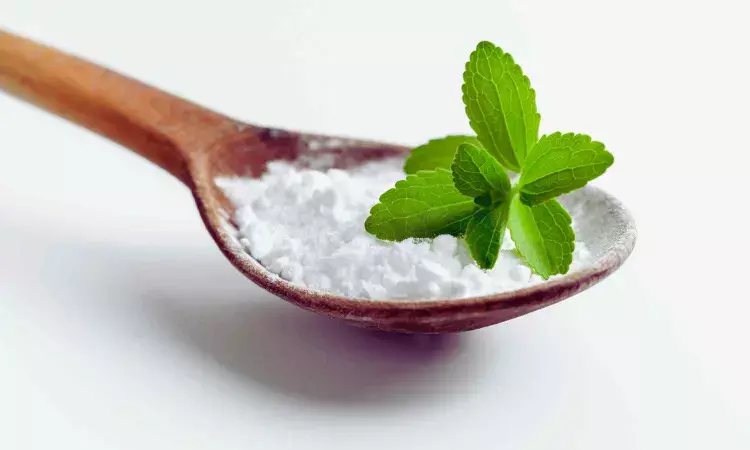- Home
- Medical news & Guidelines
- Anesthesiology
- Cardiology and CTVS
- Critical Care
- Dentistry
- Dermatology
- Diabetes and Endocrinology
- ENT
- Gastroenterology
- Medicine
- Nephrology
- Neurology
- Obstretics-Gynaecology
- Oncology
- Ophthalmology
- Orthopaedics
- Pediatrics-Neonatology
- Psychiatry
- Pulmonology
- Radiology
- Surgery
- Urology
- Laboratory Medicine
- Diet
- Nursing
- Paramedical
- Physiotherapy
- Health news
- Fact Check
- Bone Health Fact Check
- Brain Health Fact Check
- Cancer Related Fact Check
- Child Care Fact Check
- Dental and oral health fact check
- Diabetes and metabolic health fact check
- Diet and Nutrition Fact Check
- Eye and ENT Care Fact Check
- Fitness fact check
- Gut health fact check
- Heart health fact check
- Kidney health fact check
- Medical education fact check
- Men's health fact check
- Respiratory fact check
- Skin and hair care fact check
- Vaccine and Immunization fact check
- Women's health fact check
- AYUSH
- State News
- Andaman and Nicobar Islands
- Andhra Pradesh
- Arunachal Pradesh
- Assam
- Bihar
- Chandigarh
- Chattisgarh
- Dadra and Nagar Haveli
- Daman and Diu
- Delhi
- Goa
- Gujarat
- Haryana
- Himachal Pradesh
- Jammu & Kashmir
- Jharkhand
- Karnataka
- Kerala
- Ladakh
- Lakshadweep
- Madhya Pradesh
- Maharashtra
- Manipur
- Meghalaya
- Mizoram
- Nagaland
- Odisha
- Puducherry
- Punjab
- Rajasthan
- Sikkim
- Tamil Nadu
- Telangana
- Tripura
- Uttar Pradesh
- Uttrakhand
- West Bengal
- Medical Education
- Industry
Stevia leaf extract has potential as anticancer treatment, researchers find

Stevia may provide more benefits than as a zero-calorie sugar substitute. When fermented with bacteria isolated from banana leaves, stevia extract kills off pancreatic cancer cells but doesn’t harm healthy kidney cells, according to a research team at Hiroshima University.
The researchers published their findings on April 28 in the International Journal of Molecular Sciences.
“Globally, the incidence and mortality rates of pancreatic cancer continue to rise, with a five-year survival rate of less than 10%,” said co-author Narandalai Danshiitsoodol, associate professor in Department of Probiotic Science for Preventive Medicine, Graduate School of Biomedical and Health Sciences. “Pancreatic cancer is highly invasive and prone to metastasis, showing significant resistance to existing treatments, such as surgery, radiotherapy and chemotherapy. As such, there is an urgent need to identify new and effective anticancer compounds, particularly those derived from medicinal plants.”
Prior studies by other researchers indicated that stevia leaf extract demonstrated potential as an anticancer drug, but isolating and applying the specific bioactive components that protect against cancer cells has remained challenging, Danshiitsoodol said. However, fermenting with bacteria can structurally change the extract and produce bioactive metabolites, which are compounds that can impact living organisms.
“To enhance the pharmacological efficacy of natural plant extracts, microbial biotransformation has emerged as an effective strategy,” said corresponding author Masanori Sugiyama, professor in the Department of Probiotic Science for Preventive Medicine, Graduate School of Biomedical and Health Sciences. Sugiyama’s lab has isolated and evaluated the health benefits of more than 1,300 lactic acid bacteria (LAB) strains from fruits, vegetables, flowers and medicinal plants. “In this study, we aimed to compare LAB-fermented and non-fermented extracts to identify key compounds that enhance bioactivity, ultimately contributing to the efficacy of herbal medicine in cancer prevention and therapy.”
Specifically, the team fermented stevia leaf extract with plant-derived Lactobacillus plantarum SN13T strain (FSLE) and compared its effects on pancreatic cancer (PANC-1) cells in the lab, alongside non-cancerous human embryonic kidney cells HEK-293, to the effects of non-fermented stevia extract. The cells utilized in these experiments were acquired from established commercial cell lines.
“Our findings indicate that FSLE demonstrates significantly greater cytotoxicity than the non-fermented extract at equivalent concentrations, suggesting that the fermentation process enhances the bioactivity of the extract,” Sugiyama said. “Notably, FSLE exhibited lower toxicity toward the HEK-293 cells, with minimal inhibition observed even at the highest concentration tested.”
Additional analyses identified chlorogenic acid methyl ester (CAME) as the active anti-cancer compound. When fermented, the concentration of chlorogenic acid in the extract dropped six-fold, indicating a microbial transformation, according to Danshiitsoodol.
“This microbial transformation was likely due to specific enzymes in the bacteria strain used,” Danshiitsoodol said. “Our data demonstrate that CAME exhibits stronger toxicity to cells and pro-apoptotic effects — which encourage cell death — on PANC-1 cells compared to chlorogenic acid alone.”
Next, the researchers said they plan to study the effects in a mouse model to better understand the effectiveness of various dosages across a whole-body system.
“The present study has substantially enhanced our understanding of the mechanism of action of the Lactobacillus plantarum SN13T strain in the fermentation of herbal extracts, while also offering a valuable research perspective on the potential application of probiotics as natural anti-tumor agents,” Danshiitsoodol said.
Reference:
Zhang, R.; Danshiitsoodol, N.; Noda, M.; Yonezawa, S.; Kanno, K.; Sugiyama, M. Stevia Leaf Extract Fermented with Plant-Derived Lactobacillus plantarum SN13T Displays Anticancer Activity to Pancreatic Cancer PANC-1 Cell Line. Int. J. Mol. Sci. 2025, 26, 4186. https://doi.org/10.3390/ijms26094186.
Dr Kamal Kant Kohli-MBBS, DTCD- a chest specialist with more than 30 years of practice and a flair for writing clinical articles, Dr Kamal Kant Kohli joined Medical Dialogues as a Chief Editor of Medical News. Besides writing articles, as an editor, he proofreads and verifies all the medical content published on Medical Dialogues including those coming from journals, studies,medical conferences,guidelines etc. Email: drkohli@medicaldialogues.in. Contact no. 011-43720751


